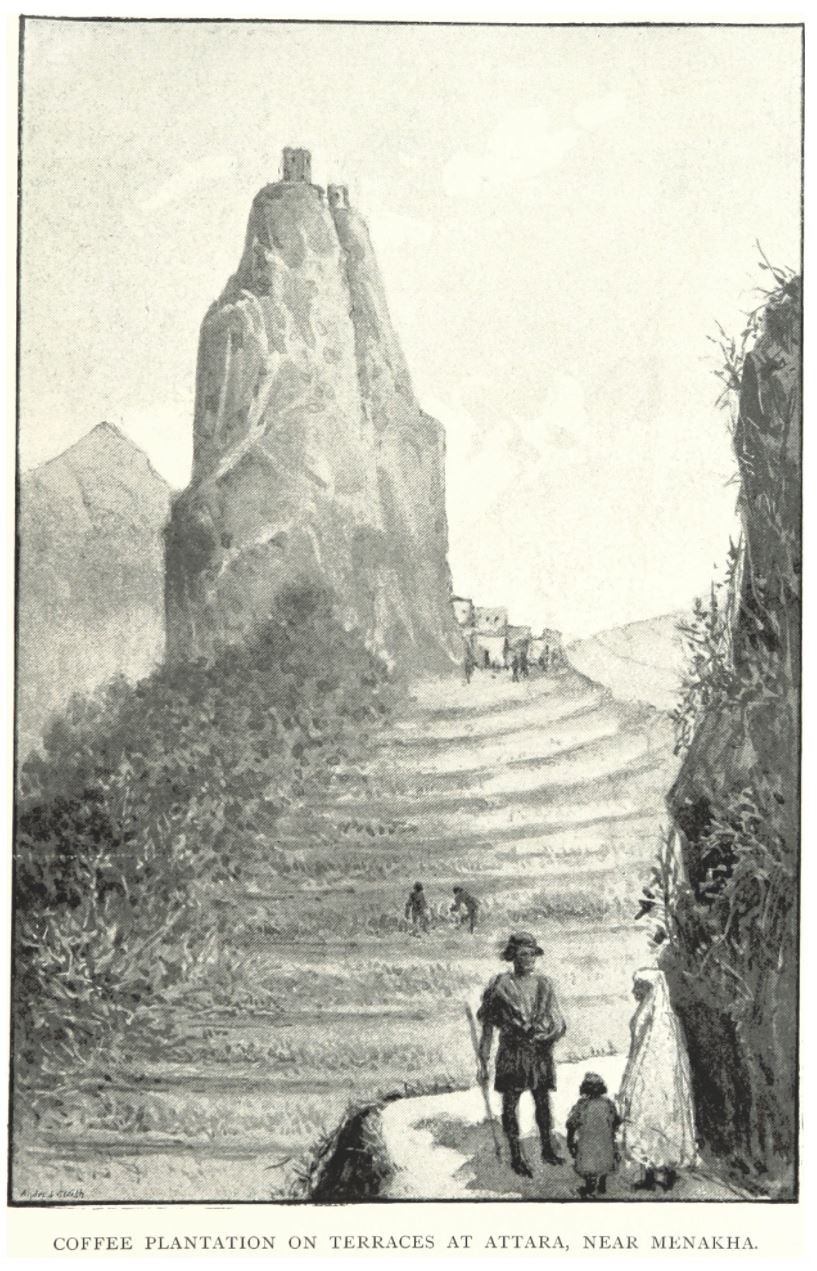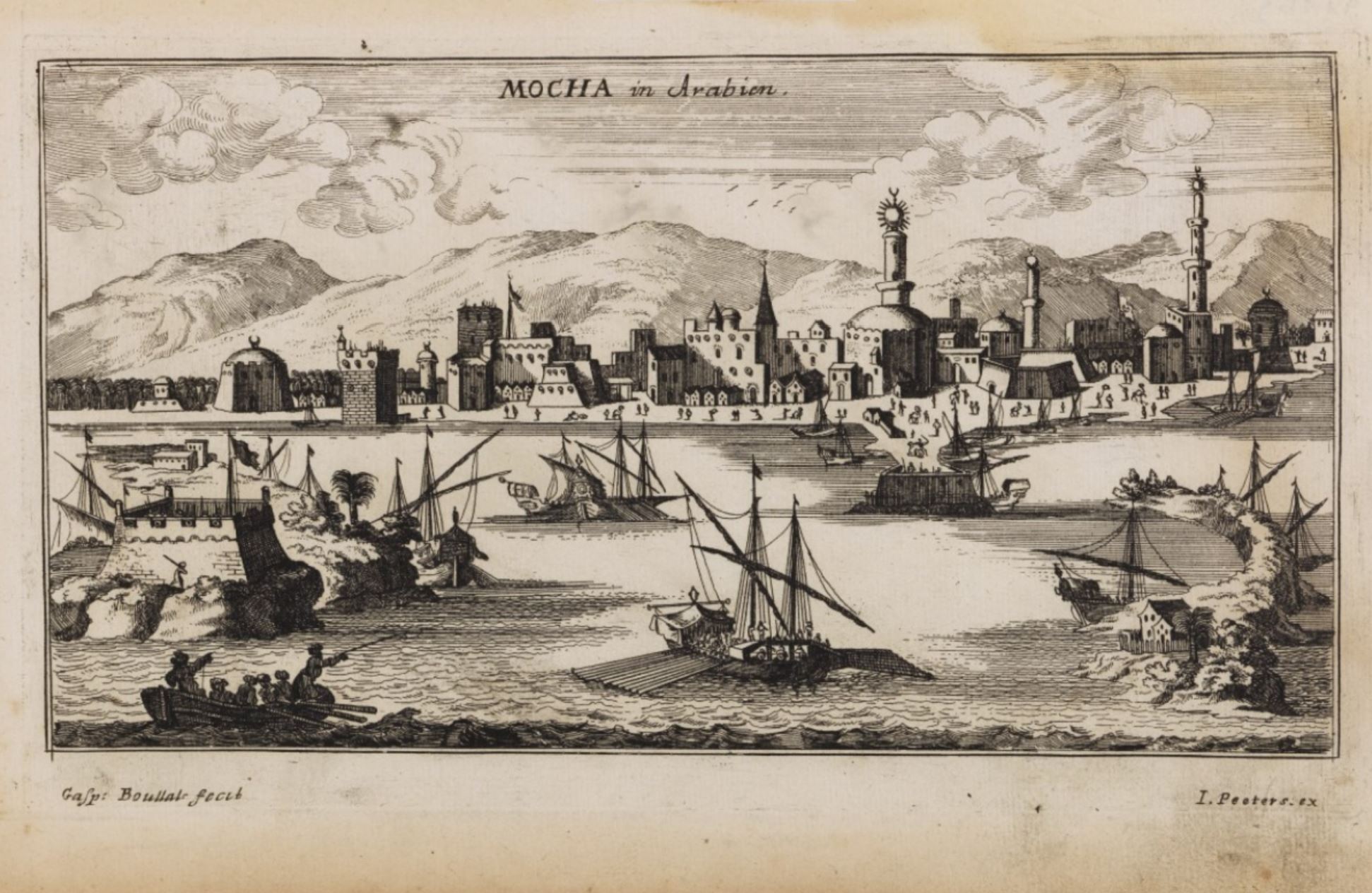Products You May Like
Although coffee beans originated in the mountainous regions of Western Ethiopia, the earliest written evidence of cultivation appeared in 12th century Yemen. Likely carried over the Red Sea by Ethiopian invaders, the plant became a foundational aspect of Islamic culture once on the Arabian peninsula. It is the favorable growing conditions of the Yemenese highlands which attributes the name to coffee lover’s beloved species: coffea arabica.
Once harvested, the beans trickled down the hills to a port on the Red Sea bearing another familiar name: Mocha. For centuries, the small city was the only gateway for coffee sold internationally. Tightly regulated by their Ottoman rulers, coffee beans were forbidden to leave Yemen without first being roasted to prevent germination.
The drink rapidly spread across Ottoman trade routes to Europe, where it was named mocha due to its similarities to chocolate. The mixing of nomenclatures continued, with Europeans attributing chocolate tasting notes to coffees of Yemenese origin from Mocha, and since it wasn’t enough, mixed real chocolate into the drink to call it a mocha.
Meanwhile coffee became the favored intoxicant of choice for the Islamic world. Named qahwa in Arabic, the same word for wine, the beverage was famously popularized by holy man Shaykh Shādhilī, who vouched for its abilities to focus on prayers and studies with less sleep. Still fueled by Yemenese coffee, which traces 90% of the global genetic strains, coffee shops started appearing all around the Islamic world. Unsure whether the drink was spurring intellectual discourse or hedonistic endeavors, coffee wavered through phases of being banned and allowed by sultans.

Proved too good to be controlled by both the Ottomans and the Sultans, coffee seeds eventually found their way into coffee globalization. With Dutch East India company’s stronghold in the Yemenese port, as well as Java and India, a tree was smuggled out and soon grew to establish our modern globalized coffee industry.
Now a very low-volume, yet highly prized coffee producer, the country’s exquisite growing conditions continue to produce some of the world’s most coveted beans. Though political unrest has made export incredibly difficult, there’s continued esteem for the region which put coffee on the map, and optimism for its future.

